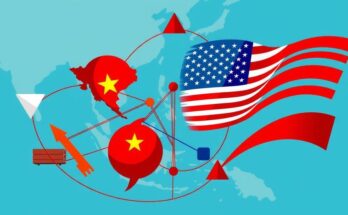Walmart has requested Chinese suppliers to reduce prices by 10% amid U.S. tariffs, leading to tensions with Beijing. The company is reportedly shifting sourcing to reduce reliance on China. CFO John David Rainey highlighted concerns over potential tariff impacts on consumers, as further tariffs from President Trump were recently imposed.
Walmart has recently engaged in a contentious dialogue with Chinese suppliers, requesting a price reduction of up to 10% to mitigate the financial impact of U.S. tariffs. This move has prompted a strong response from Beijing, including a meeting between Chinese officials and Walmart representatives. Reports indicate that China perceived Walmart’s request as an intimidation tactic that may have further implications.
Following this tension, there have been concerns that should Walmart persist in its demands, significant repercussions may be forthcoming. For instance, Chinese social media outlets conveyed warnings suggesting severe consequences for the retailer. Nevertheless, Walmart representatives have maintained that they seek collaborative solutions to protect all parties involved.
In light of ongoing trade challenges, Walmart has demonstrated a shift in its supply chain strategies. In 2023, it was reported that Walmart’s imports from China decreased to approximately 60%, down from 80% in 2018. This change reflects a growing trend of sourcing products from alternative markets such as India as a response to tariffs and cost pressures.
During an investor conference, Walmart’s CFO, John David Rainey, acknowledged the unpredictability of the Trump tariffs but expressed confidence in the company’s ability to manage them effectively. He cautioned, however, about the broader implications of these tariffs on consumer prices.
Furthermore, in the context of trade relations, President Trump introduced a new 20% tariff specifically targeting China amid concerns over fentanyl trafficking, further complicating Walmart’s operational landscape. His administration’s position remains that tariffs on Chinese goods are justified given the disparity in tariff rates between the two countries.
In conclusion, Walmart’s request for Chinese suppliers to cut prices reflects the ongoing challenges posed by U.S. tariffs. The retailer’s evolving supply chain strategies and cautious outlook regarding consumer pricing demonstrate the complexities of navigating international trade. With shifting sourcing patterns and growing tensions with China, Walmart’s ability to adapt will be essential for its future success in the global market.
Original Source: www.foxbusiness.com




